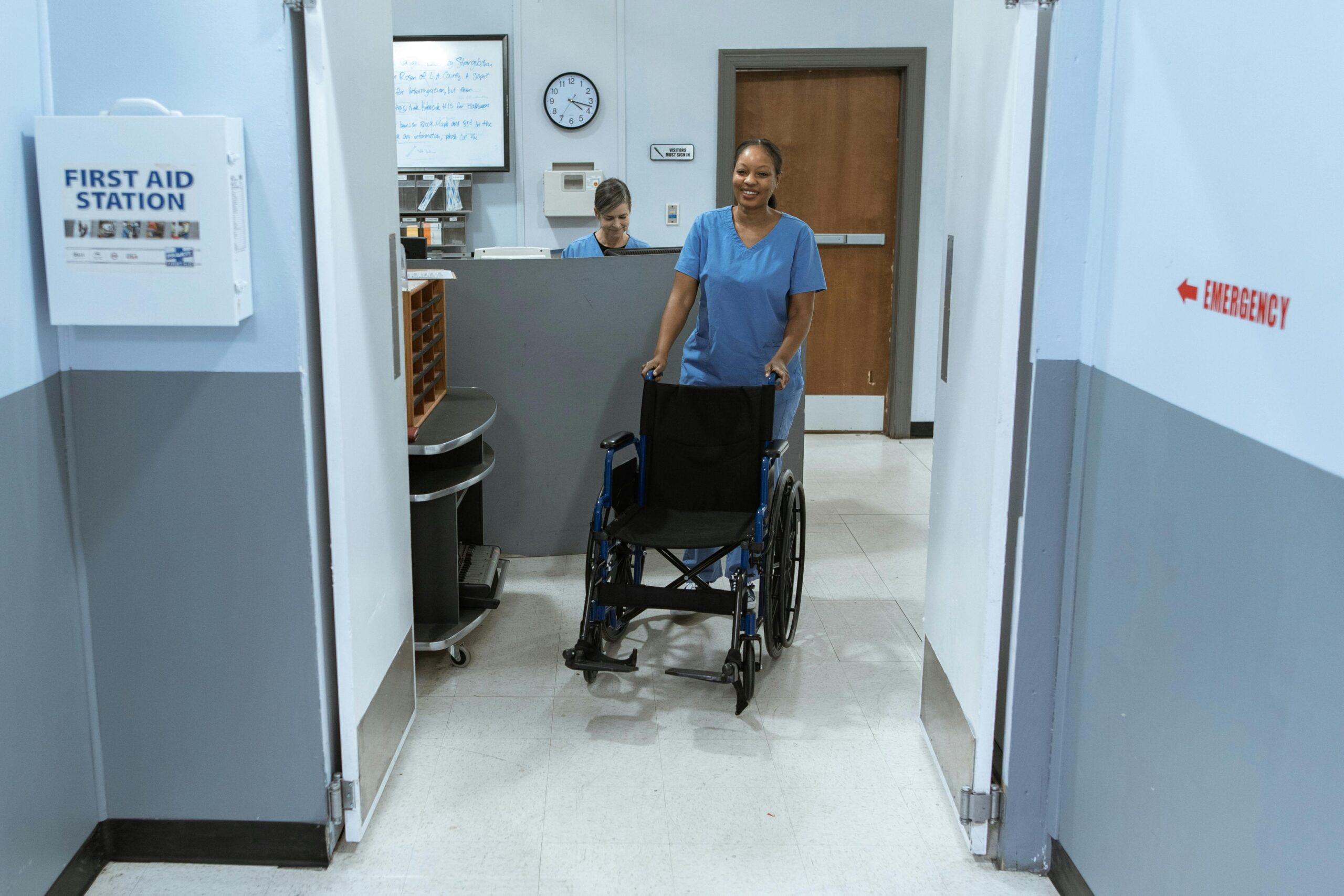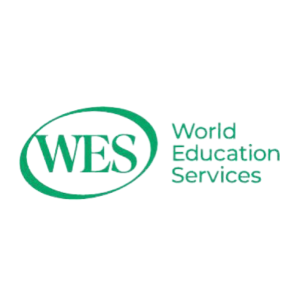In this blog post, Stefanie Vasquez, Program Manager at World Education Services, shares insights from her conversation with Paula DaSilva-Michelin, EdD, an internationally educated immigrant from Brazil who understands firsthand the barriers newcomers face when trying to re-enter their professions in the United States. As the Director of Programs at the Center for Immigrant Education and Training (CIET) at LaGuardia Community College, Paula leads the Welcome Back Center (WBC), which supports internationally trained nurses in overcoming some of these challenges. The WBC stands out for its holistic educational and case management approach in helping its students achieve long–term career success.
The Challenges Internationally Trained Newcomers Face
Despite their advanced skills and qualifications, internationally trained newcomers encounter systemic barriers when trying to re-establish their careers in the United States, such as non-recognition of their credentials, language proficiency hurdles, and unfamiliarity with the U.S. job market. Additionally, the specific challenges faced by certain demographics, particularly women, are significant. “For many WBC students, especially women, including single mothers and caregivers, these challenges are compounded by limited access to child care, transportation, and family support,” DaSilva-Michelin notes.
Supporting Newcomers’ Careers: The Role of the Welcome Back Center
The Welcome Back Center (WBC) is a specialized program that addresses critical health care workforce shortages while breaking down barriers and creating professional opportunities for internationally trained nurses whose first language is not English. The WBC helps participants overcome language barriers by providing preparatory English instruction tailored to health care terminology, with ongoing language support throughout the program. To ease the complexities of U.S. licensing requirements, the WBC offers detailed guidance on the New York State licensing process. Where appropriate, WBC staff direct individuals to organizations that can assist with credential evaluation and licensing.
Additionally, the WBC fosters social capital through peer support groups, mentorship programs, and alumni nights, where graduated nurses return to share insights and advice on navigating the program and entering the workforce. These alumni sessions allow current students to learn firsthand about the journey from start to completion and what to expect after graduation. By addressing these specific barriers and leveraging LaGuardia Community College’s academic and vocational resources, the WBC creates an enhanced support network for internationally trained health care professionals, establishing a model that other programs can emulate.
Redefining Success for Newcomer Professionals
The Welcome Back Center has transformed the lives of many participants, including that of a nurse from Nepal who immigrated to the U.S. in 2007. While working various jobs, she took English classes at LaGuardia and pursued an associate’s degree. After joining the Welcome Back Center, she completed the NCLEX-RN Preparation Course, passed the exam, and secured a nursing position. Now a biology graduate, she is pursuing her bachelor’s degree in nursing. Read her success story here.
“Success looks different for each individual,” DaSilva-Michelin notes. “For some, success might be securing a career in health care after completing U.S. nursing exams; for others, it might be finding stable employment that allows them to support their families.” She emphasizes the importance of newcomers leveraging degrees from their home countries as a foundation for building a career rather than merely finding a job—especially as they age and labor-intensive jobs become less viable. This holistic view of success ensures that participants achieve immediate goals while also positioning themselves for long-term career growth and stability.
Recommendations for Refugee Service Providers
The LaGuardia Welcome Back Center thrives on strong partnerships and robust financial backing from various sources, enabling it to achieve great success. If you are a service provider with limited resources or a broader focus, you can still benefit from adopting some of the WBC’s effective approaches. Below we describe these approaches, along with two other strategies that can enhance your work with refugees and newcomers:
Effective Approaches from the Welcome Back Center:
Partnerships with Employers:
- Develop strong relationships with local employers and professional networks to help create employment pathways for clients. The WBC implements this effective strategy by actively reaching out to local health care facilities facing workforce shortages, ensuring connections with current students and graduates.
- Engage HR representatives, hiring managers, and field staff within potential employer organizations to enhance visibility and influence hiring decisions.
- Proactively address workforce needs by understanding local employers’ demands, particularly in high-demand sectors like health care. The WBC has done this successfully, as health care facilities frequently seek connections to its graduates.
- Collaborate with community colleges to utilize career centers for employment connections and job placements, enhancing your program’s resources.
- Finally, engage case managers or outreach coordinators to build and sustain employer partnerships through regular follow-ups, ensuring clients have access to diverse employment opportunities. Resources like Switchboard’s guide and archived webinar on establishing and maintaining employer partnerships offer useful insights.
Community Inclusion: - Facilitate community integration through mentorship programs and peer support groups that include training for mentors and regular meet-ups focused on skill-building and cultural orientation. This approach helps newcomers adapt to their new environment and fosters a sense of belonging through essential social and professional support.
- Leverage alumni networks to maintain strong ties with former program participants who can provide job referrals and mentorship.
Complementary Strategies to Consider:
Advocacy and Education:
- Stay informed about key policy and educational updates, such as changes to Federal Student Aid (FAFSA) requirements, visa regulations, or professional licensing criteria that impact newcomers.
- Conduct workshops or informational sessions for clients that explain these changes in detail, ensuring that newcomers and partners receive relevant, timely guidance and resources to navigate these transitions effectively.
Credential Evaluation and Licensing Assistance: - Learn about the processes of credential evaluation, particularly for professions that require certification or licensing, such as health care or engineering.
- Establish connections with specific credentialing bodies or professional associations to facilitate smoother evaluations.
- If you do not work directly with these organizations, create a resource list of relevant organizations that specialize in credential evaluation and licensure support, helping newcomers easily access the information they need.
Additional Training and Education Models from the Field
Fortunately, programs supporting the economic inclusion of internationally trained newcomers are increasing. Look into initiatives in your area, or consider partnering with employers, immigrant workforce organizations, and local government to start new ones. You can also find a list of programmatic initiatives that received Office of Refugee Resettlement (ORR) funding through the Refugee Career Pathways Program here.
The following are samples of model programs and initiatives that are effectively supporting internationally trained professionals across the U.S.:
- For displaced academics, Scholars at Risk provides support through its Protection Program, which arranges temporary academic positions to offer scholars the opportunity to continue their research and teaching in a safe environment.
- Maine’s New Mainers Resource Center offers individualized guidance to skilled immigrants on getting credentials evaluated, meeting licensing requirements, and understanding related career paths.
- Community colleges like Chemeketa, Miami Dade, LaGuardia, and Austin provide career development programs for internationally trained newcomers. They focus on providing comprehensive career support, including information and referrals (as well as assistance with costs) for credential evaluation and licensing.
- The Puget Sound Welcome Back Center at Highline College works with local refugee- and immigrant-serving organizations that collaborate with the college on referrals, local job searches, and other support services.
- Similarly, Howard Community College (HCC) has developed a career development program for internationally trained immigrants that operates through community partner collaboration and focuses on providing comprehensive career support, including information and referrals, assistance with costs for credential evaluation and licensing, and guidance on navigating the local job market and utilizing available resources.
- Washington’s innovative Integrated Basic Education and Skills Training (I-BEST) program pioneered an approach that co-teaches English and career/technical content for more efficient skills acquisition.
- The African Bridge Network (ABN), based in Massachusetts, empowers internationally trained immigrants and refugees through various services like workshops, mentorship, and networking events. Notably, their fellowship program offers innovative opportunities for career development and success.
- The International Institute of St. Louis Career Pathways Program offers a multifaceted approach to career development, including a Workforce Solutions Program.
- Upwardly Global, an ORR grantee, offers a comprehensive Career Coaching Program specifically for New Americans with degrees from other countries. In 2022 alone, the Career Coaching Program facilitated an impressive 1,116 job placements.
Noteworthy Reading for Supporting Internationally Trained Newcomers
The Department of Labor’s Bridging the Gap for New Americans Study, released in 2024, is the first federal study exploring the barriers and opportunities facing internationally trained newcomers. It highlights key training and employment programs that promote workforce inclusion for newcomers. World Education Services (WES) also provides a policy report on the study, offering responses and recommendations to strengthen support for internationally trained newcomers.










